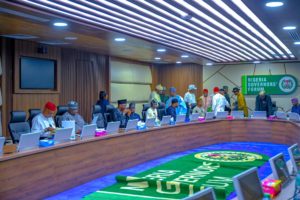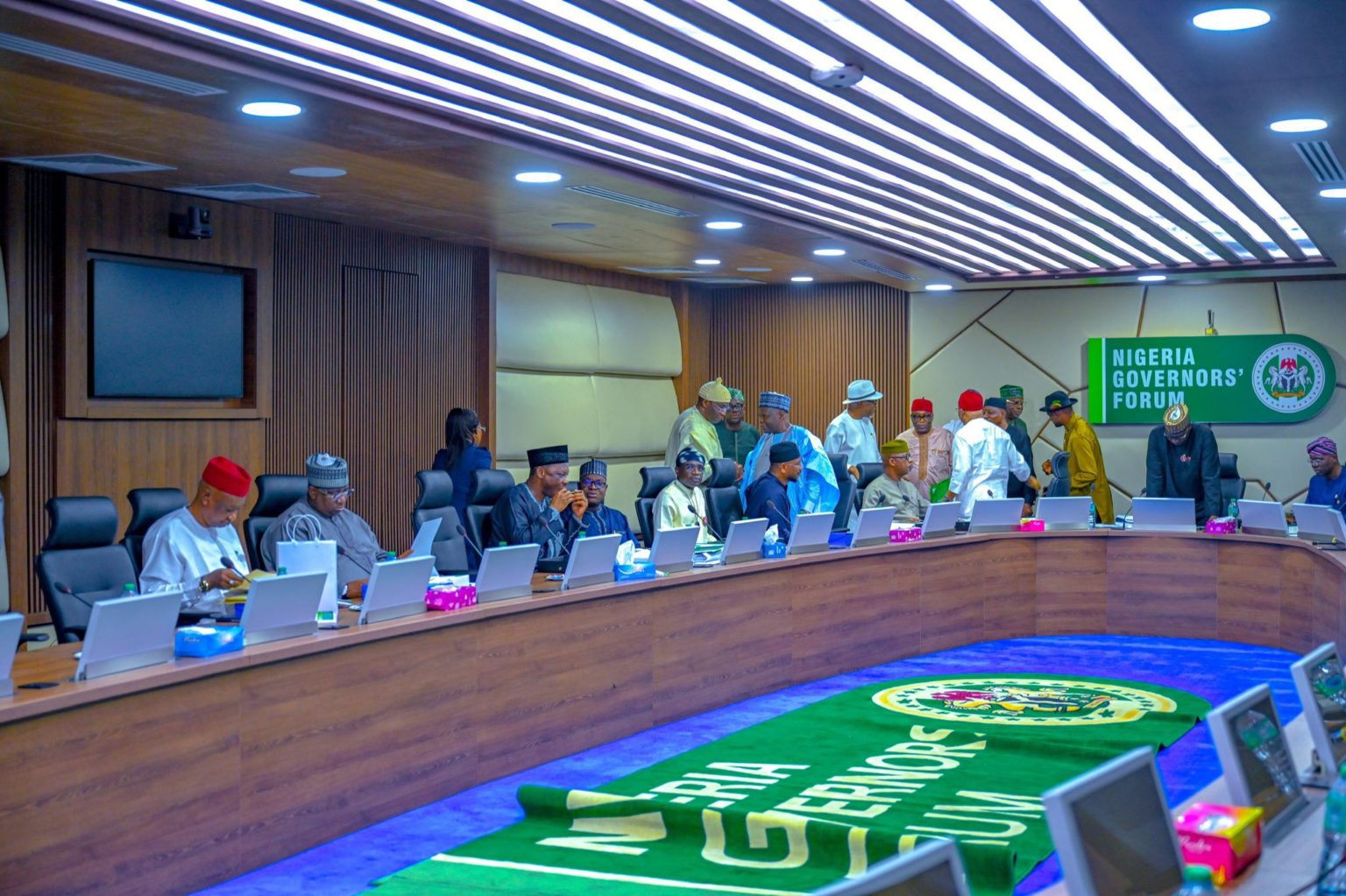
By Adeyemi Adekunle
To enhance balance economic stability with equity, the Nigeria Governors’ Forum (NGF) has thrown its weight behind the Tax Reform Bills currently under review. After deliberations led by NGF Chairman AbdulRahman AbdulRazaq, the governors announced their endorsement of the bills while outlining critical recommendations to safeguard citizens’ welfare and promote fairness in revenue sharing.
For many Nigerians struggling with rising costs and stagnant incomes, the governors’ decision to advocate against any increase in the Value Added Tax (VAT) rate is welcome news. VAT, a consumption tax applied to goods and services, has long been a burden for average Nigerians, especially those living paycheck to paycheck. By urging the federal government to maintain the current rate, the governors aim to alleviate economic pressures on families already grappling with inflation and high food prices.
Equity emerged as a central theme in the Forum’s proposals, particularly through a revised VAT sharing formula designed to ensure fairer resource allocation across states. Under the new formula, resources would be distributed with 50% based on equality among states, 30% based on derivation—the principle that states generating more should retain a fair share—and 20% based on population. This shift seeks to address lingering complaints from states with larger populations or higher VAT contributions about the perceived inequities in the current system.
The Forum’s emphasis on safeguarding essential goods and agricultural produce from VAT provides another layer of reassurance for millions of Nigerians. This exemption means that staples like rice, garri, and vegetables will remain affordable for families, while farmers can continue contributing to food security without additional tax burdens. For Ibrahim Musa, a rice farmer in Kebbi State, this recommendation could mean the difference between sustaining his livelihood and falling into debt. “Agriculture is already challenging,” he said. “If they start taxing fertilizer or produce, we will lose everything.”
Equally significant was the governors’ push to protect critical national development agencies such as the Tertiary Education Trust Fund (TETFUND), National Agency for Science and Engineering Infrastructure (NASENI), and National Information Technology Development Agency (NITDA) from restrictive clauses that could undermine their long-term operations. For decades, these agencies have driven development in education, technology, and infrastructure. By ensuring their funding remains secure, the NGF is reinforcing Nigeria’s long-term economic prospects.
As the Forum voiced its support for the continuation of the legislative process surrounding the Tax Reform Bills in the National Assembly, it urged lawmakers to strike a balance between generating revenue and protecting vulnerable communities. Governor AbdulRazaq underscored the need for caution: “This is not just about numbers on paper; it’s about the people who will feel the impact. We cannot jeopardize the welfare of ordinary Nigerians in our pursuit of economic reforms.”
Many citizens see the NGF’s recommendations as an effort to correct past imbalances while avoiding measures that could worsen existing hardships. For business owners like Chioma Ndukwe, who runs a small bakery in Enugu, the decision to freeze Corporate Income Tax (CIT) reductions is a practical move. “If you lower corporate taxes, it’s usually big companies that benefit, not small businesses like mine,” Chioma explained. “We need policies that address inequality, not widen it.”
However, skepticism remains about whether these proposed reforms will be implemented effectively. Critics of the current system argue that past tax policies have often favored urban centers, leaving rural areas with insufficient resources despite their contributions to the economy. Activists are calling for more transparency and accountability in how tax revenues are utilized, to ensure that the poorest regions see tangible benefits.
Beyond the political chambers, the debate over tax reform extends to markets, farms, and homes across Nigeria, where citizens hope these measures can bring some relief in their everyday lives. The conversation isn’t just about percentages or formulas; it’s about real people navigating real struggles. For many, the endorsement of the Tax Reform Bills signals hope, but the path ahead requires vigilance to ensure promises translate into meaningful action.
With economic pressures mounting and public trust in governance strained, the Nigeria Governors’ Forum has a critical role to play in ensuring these reforms prioritize equity, accountability, and the welfare of every Nigerian. As the legislative process unfolds, citizens will be watching closely, hoping for reforms that reflect their realities and safeguard their futures.




